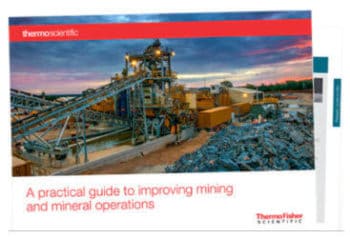In the midstream hydrocarbon industry, maintaining balance within gathering systems is a critical yet complex task. This balance not only ensures operational efficiency but also protects infrastructure, supports regulatory compliance, and minimizes costly downtime. While flow measurement technologies are essential for capturing real-time data, the integration of flow computation elevates their utility, enabling operators to optimize system performance and achieve sustainable operations.
The Synergy of Flow Measurement and Computation
Flow measurement technologies, including mass flow meters and differential pressure meters, provide essential data on flow rates, pressure fluctuations, and fluid characteristics. However, the true value of these measurements lies in their interpretation. Flow computation takes raw data from meters and transforms it into actionable insights, offering operators a comprehensive view of their pipeline systems.
Flow computers process and analyze this data in real-time, facilitating calculations such as volumetric and mass flow rates, pressure drop analysis, and energy efficiency metrics. The integration of measurement and computation ensures accuracy and enhances decision-making, especially in dynamic midstream environments.
Midstream Challenges Addressed by Flow Computation
Operators face numerous challenges in balancing hydrocarbon gathering systems, including:
- Variable Flow Dynamics: Production volumes often fluctuate due to well decline, seasonal factors, or maintenance schedules. These inconsistencies can disrupt system stability and measurement precision.
- Pressure Management Issues: Unpredictable pressure changes can strain infrastructure, increasing the risk of failures and safety incidents.
- Infrastructure Constraints: Many systems were designed for earlier operational demands, complicating the task of meeting modern throughput and reliability standards.
- Regulatory Compliance: Operators must align with evolving environmental and safety regulations, which demand precise monitoring and accurate reporting.
How Flow Computation Enhances Midstream Operations
Flow computation works in tandem with measurement technologies to address these challenges by providing:
- Real-Time Insights: Processing data as it’s collected allows operators to respond immediately to anomalies, minimizing risks and inefficiencies.
- Advanced Scalability: Flow computation platforms can adapt to both small-scale and complex networked systems, supporting a wide range of operational setups.
- Predictive Analytics: Analyzing historical and real-time data enables predictive maintenance, reducing unplanned downtime and improving asset longevity.
- Streamlined Compliance: Accurate, traceable data ensures alignment with industry standards, enhancing transparency and reliability in reporting.
Strategic Approaches to Balancing Midstream Systems
Combining flow measurement with computation empowers operators to implement effective strategies, such as:
- Hydraulic Modeling: Flow computation enhances simulations of pipeline conditions, helping operators forecast potential issues and optimize system parameters.
- Dynamic Flow Allocation: By automatically adjusting flow rates based on real-time data, operators can reduce bottlenecks and enhance efficiency.
- Optimized Pressure Control: Computational systems enable precise management of valves and pressure regulators, minimizing risks of over-pressurization or infrastructure fatigue.
Data Analytics and Automation in Flow Systems
The integration of flow computation with automation tools transforms raw data into actionable insights. Advanced analytics platforms utilize historical trends and real-time inputs to optimize flow allocation, enhance energy efficiency, and ensure system reliability. Emerging technologies, such as digital twins, allow operators to simulate scenarios in virtual environments, refining strategies without disrupting live operations.
A Balanced System: The Operational Edge
Integrating flow computation with measurement technologies delivers tangible benefits. Operators can reduce energy consumption, minimize downtime, and extend the lifespan of infrastructure, all while helping to ensure compliance with stringent regulations. By transforming data into strategic insights, flow computation enables smarter, more sustainable midstream operations.
Final Thoughts
Balancing midstream hydrocarbon gathering systems is both a challenge and an opportunity. By leveraging the synergy between flow measurement and flow computation, operators can overcome obstacles, optimize performance, and help ensure operational success. For guidance on implementing a holistic flow system strategy, consult industry experts to explore tailored solutions for your operations.







Leave a Reply